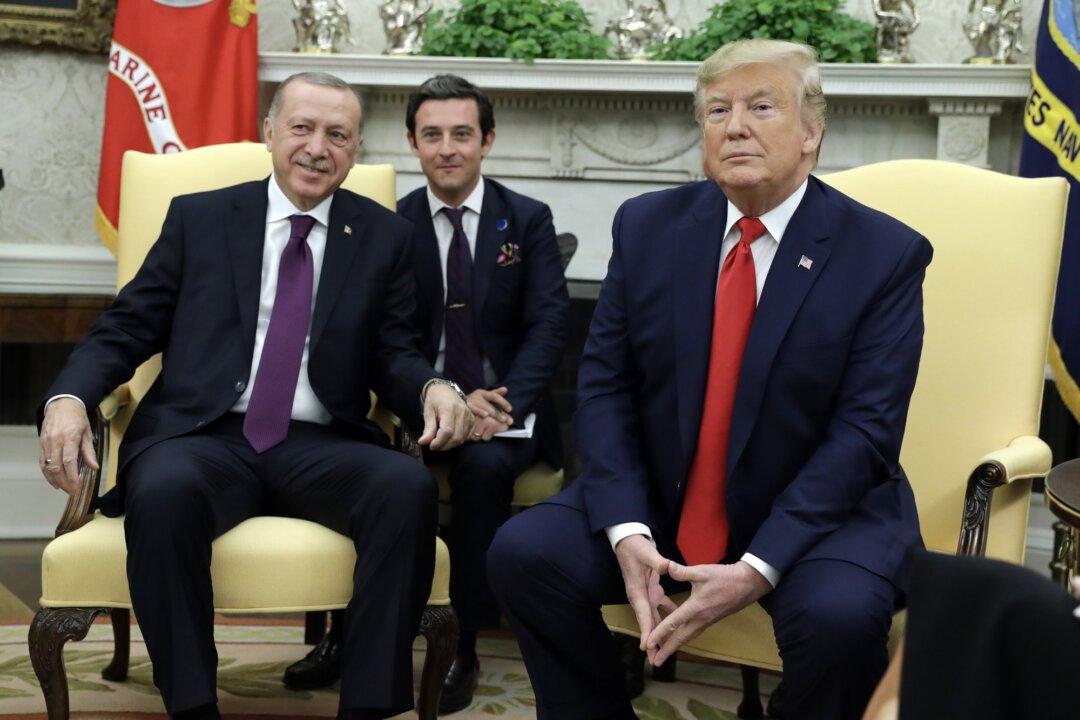President Donald Trump met his Turkish counterpart, Recep Tayyip Erdoğan, in the White House on Wednesday, Nov. 13. Trump went into the talks focused on trade, fighting ISIS, and on untangling some contentious issues in the relationship with the NATO ally.
During an afternoon press conference, Trump praised Turkey’s participation in the United States’ fight against terrorism, including some assistance Turkey provided to the operation to kill ISIS terrorist leader Abu Bakr al-Baghdadi.





